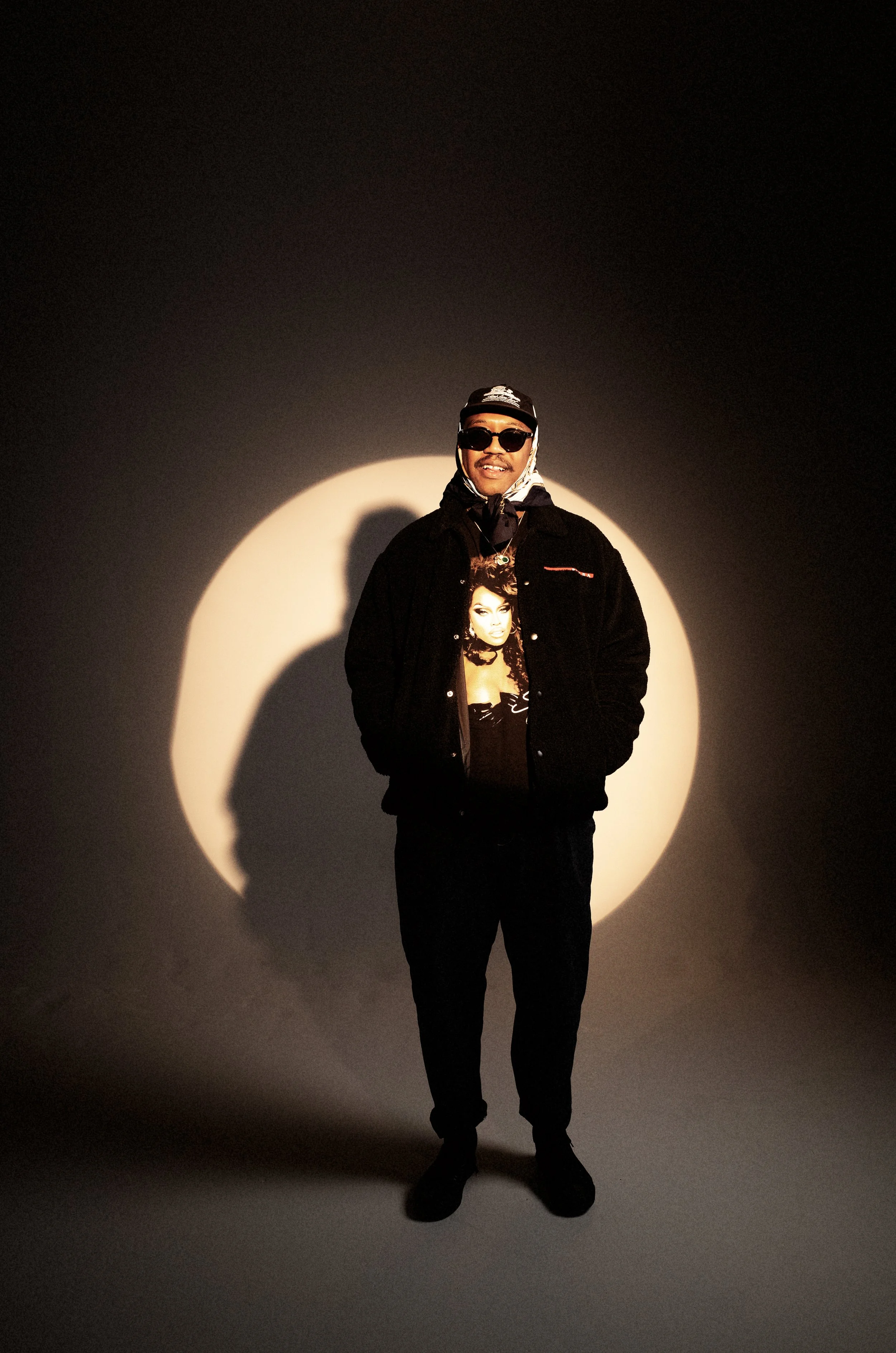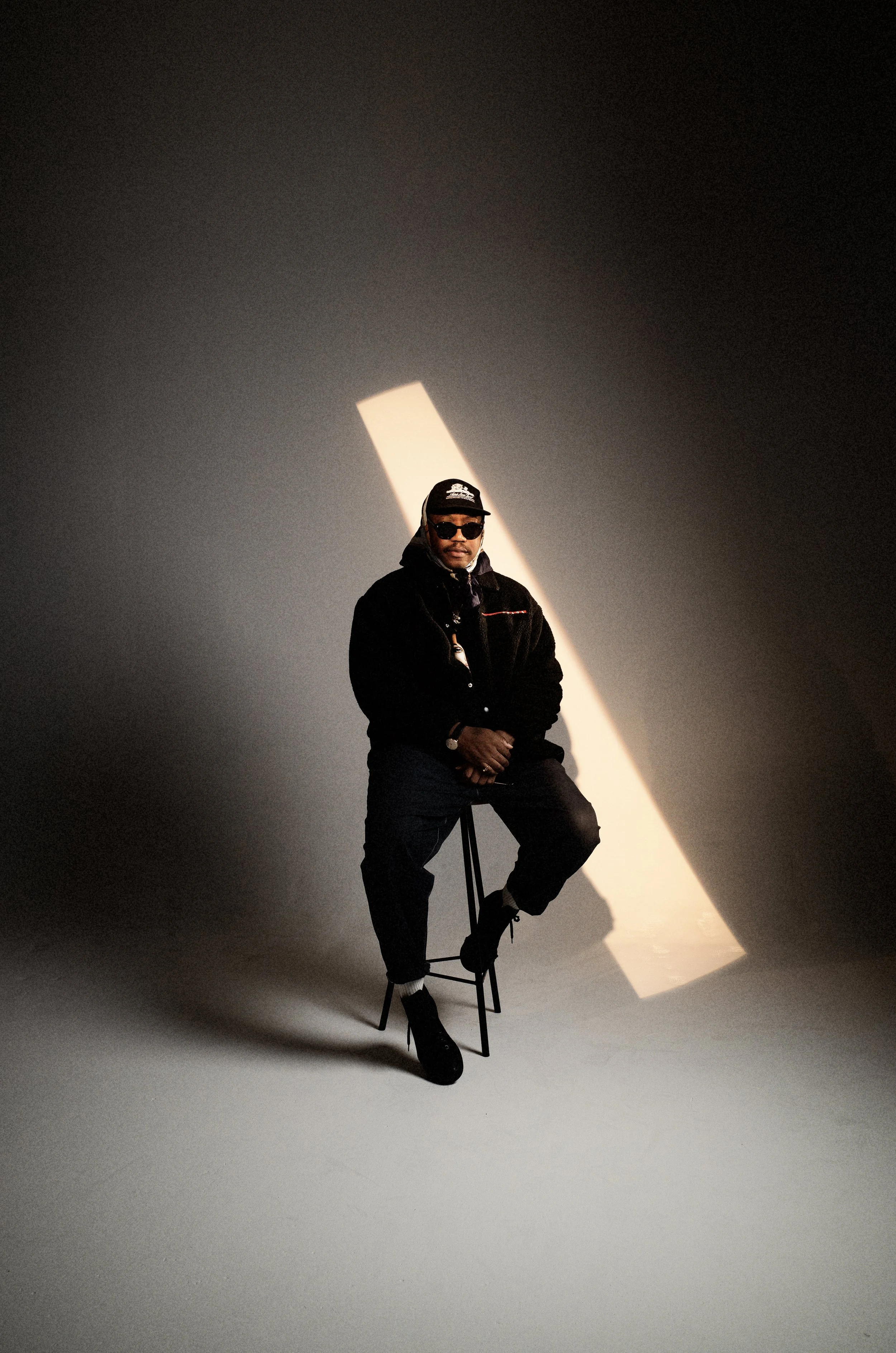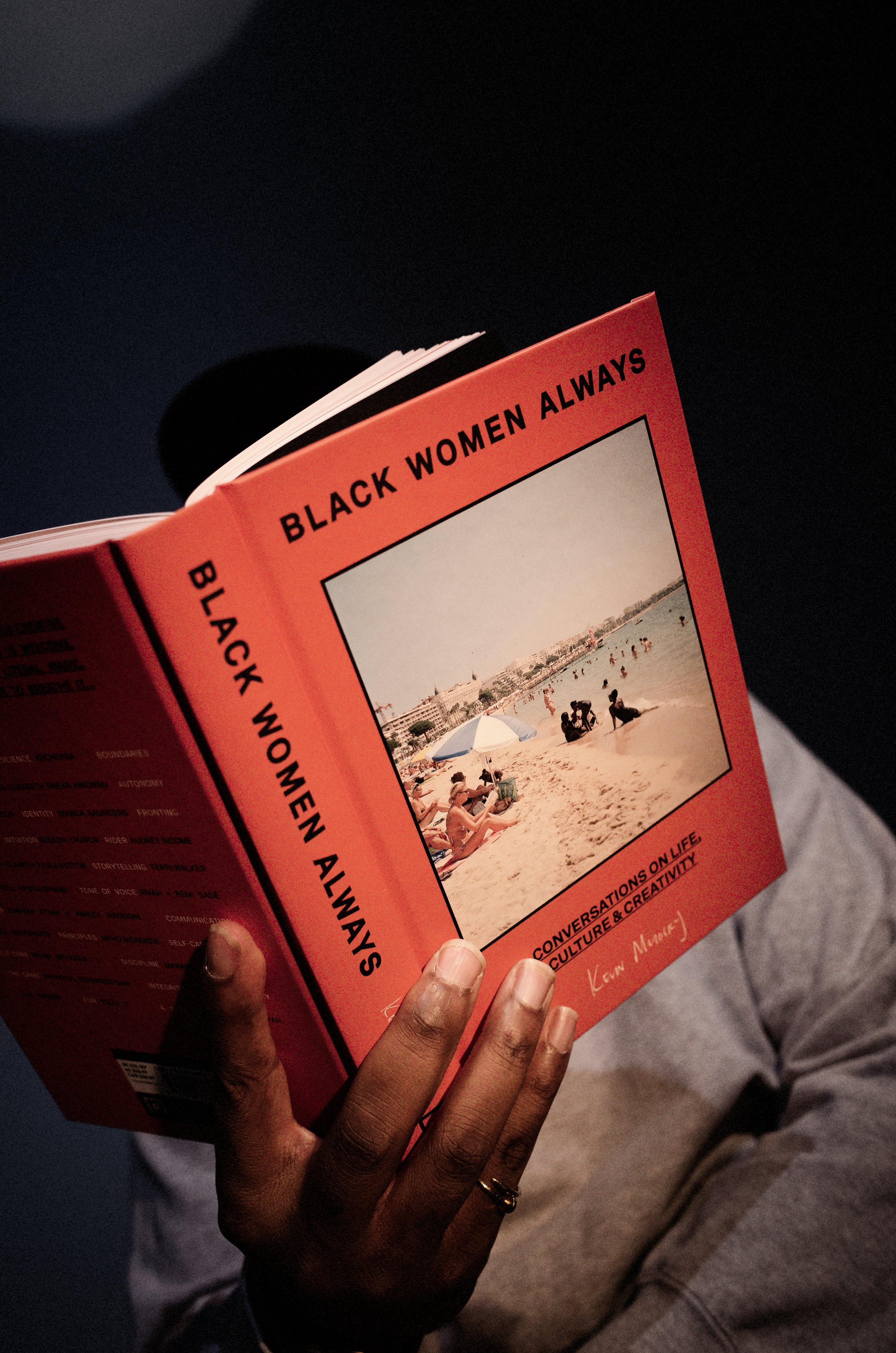SPOTLIGHT: Mr Kevin Morosky
Words - Tajinder Hayer
Photography - Chieska Fortune Smith
A Multi-Disciplinary Creative and Advocate
Kevin Morosky is not your typical artist. As a multi-disciplinary creative, film auteur, and author, Morosky has carved a niche for himself in the artistic landscape with his singular vision and style. His latest endeavour, the book titled Black Women Always: Conversations on Life, Culture & Creativity, is a testament to his commitment to amplifying marginalised voices and trying to encourage representation and fostering meaningful dialogue. As a filmmaker his award-winning short film, Bruce, aired on Channel 4 in 2021 and was part of the Edinburgh Film Festival in 2022. In the same year, Kevin’s other short Spun won Best Short at Bolton Film Festival
In addition to his work in film, Morosky is also a prolific author, penning thought-provoking essays and articles on topics ranging from social justice to creative expression. His first book, Notes, was self-published - an intimate retelling of his experience of heartbreak told through short, poetic vignettes.
What led to you working on Black Women Always?
Essentially I just wanted a creative manual that was inclusive of culture, and that was inclusive and inter-sectional. From working in advertising and coming across those kinds of books I was struck by how emotionless they are. It led me to think how can it be possible to have creativity without emotion? So I wanted to counteract that. As I started to delve into that I realised that I had so many great influences from black women. I felt like the conversations needed to happen, and had not happened before. Almost naturally that became Black Women Always.
The lack of diversity in creative world was also something that really struck out for me. So much of the books that were available before were born our of privilege and inherently from those that had been born into an affluent family or had connections that helped them to progress. Creating work in the adverting space revolves around culture, trends and what is happening at the time. But not of that contribution was credited or mentioned.
How did you select the women that you spoke to?
It really was finding those that I thought best suited the subject matters. I wanted to speak to the specific architect that taught me, or influenced me. Each chapter was devoted to one of these women and there was no second choice. It had to be the only appropriate person or it would not have happened.
How would you describe the work to those that are unfamiliar?
I would say that it is a space for anyone that wants to be creative. It is definitely not specific to the world of advertising. I have really tried to make it accessible to everyone whilst also using the correct advertising words and terminology. If you are an artist, film editor, producer or writer, it is for you. I also wanted to be open about the world of advertising for those that do not know it.
Your first book Notes was self published. What is the process of getting a book to be released as self-published?
Well there is a Jamaican phrase called “vex money” which is typically money stashed on your person or in a secret place (a brassiere, a bank account). I knew that I wanted to write a book of black queer poetry. I was talking to some publishers but I did not want to be influenced by any agenda or anything social topical. So I decided to use my vex money. It meant I was free to do things my way, and I learnt a lot about how it all works. It also really influenced how Black Women Always turned out. It was really important to me that I would be designing and art-directing the cover and the pages of the publication.
When it came out, the most wonderful thing was how Mums were reaching out to me, and telling me that it was helping to bridge the conversation with young, black gay men. I got thousands of messages like this. There was one specific one that I remember, the Mum purchased her son and his new husband each a copy of the book. The relationship had been a little estranged prior to that, and I felt like it was her reaching out to them with acceptance.
You’ve been previously quoted as being disappointed about the lack of representation for you, but was there anyone or anything that have informed your voice as an artist?
There really wasn’t anyone for me in the arts space. I had people that I looked up to and was interested in. My biggest influence was probably Biggie Smalls. I loved the poetry of his music. Growing up, it did not occur to me to work in the arts world. I was genuinely just interested in trying new things and learning myself what I wanted to do.
What can you tell us about your film work? Especially Gently?
So Gently was an experience. It was made on an incubator programme with a film school and Disney, specifically for filmmakers/ writers for all experience levels. I applied for it with my creative partner Tom and it was an interesting opportunity as it would give us access to certain people like screenwriters. The short fifteen minute feature is the story of a young black boy that is on a journey, learns a lot about himself and makes a great friend. There were wonderful times and really stressful times, but the whole thing was a great learning experience.
As a creative in the arts, what are your views on black audience only London theatre nights?
Well for me it makes it really clear that so many people that say that they learnt from the events of 2020, but obviously did not. It is another case of the majority putting themselves into a situation that is not for them. I am a huge fan of the theatre, and often buy the best tickets that I can. In my experience, those spaces can often be hostile. The audience around me is all white and middle class, and I get a lot of looks, tickets being checked more often than other people etc. It is clear to me what is happening on. Theatres can be, and are, triggering and do not feel like safe spaces. So any attempt to try and change that is a wonderful thing in building confidence.
Black Women Always: Conversations on Life, Culture & Creativity by Kevin Morosky, published by HarperCollins Publishers, priced at £22 is out now.
Follow Kevin Morosky on Instagram.




